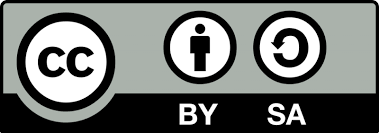The implementation of curricular strategies in career Degree in Primary Education
DOI:
https://doi.org/10.23824/ase.v0i28.590Downloads
Abstract
In Cuba, the integral formation of university graduates is a necessity. In this endeavor, the Curricular Strategies acquire singular importance. This study/research reveals the strengths and weaknesses in the implementation of the Curricular Strategies in career Degree in Elementary Education. Correspondingly, the objective is: to propose a system of procedures for perfecting the implementation of Curricular Strategies in the direction in the management of the educational of the different disciplines of this career. The implementation of this system of procedures in different subjects of the career already exhibits satisfactory results.
References
Álvarez, C. (1983). Fundamentos teóricos de la dirección del proceso de formación del profesional de perfil amplio. UCLV Marta Abreu, Santa Clara.
Álvarez, C. (1999). Didáctica la escuela en la vida. La Habana: Editorial Educación y Desarrollo.
Bermúdez, R. & Rodríguez, M. (1996). Teoría y metodología del aprendizaje. Editorial Pueblo y Educación. La Habana.
Coll, C. (1991). Aprendizaje escolar y construcción del conocimiento. Editorial Piados. Barcelona. España.
De Armas, R. & Espí, N. (2004). El Sistema de Educación Superior de la República de Cuba. Obtenido de http://tuning.unideusto.org/tuningal/images/stories/presentaciones/cuba_doc.pdf
Díaz-Canel, M. (2012). Conferencia inaugural. La universidad y el desarrollo sostenible: una visión desde Cuba. En: 8. Congreso Internacional de Educación Superior, 13 de febrero de 2012.
Dodge, B. (2000). A Road Map for Designing WebQuest/Thinking Visually with and about WebQuest. Obtenido de http://www.pkwy.k12.mo.us/intra/professional/METCFColeman.htm
Fragoso, J. E. & Caballero, E. (2010). Orientaciones metodológicas y de organización de la carrera Licenciatura en Educación Primaria. Plan D. [material digital]
Hopkins, Ch. & McKeown, R. (2002). Education for Sustainable Development: an International Perspective. En: Teaching Sustainability at Universities: Toward Greening the Curriculum, Walter Leal Fihlo, comp, p. 19. Alemania: Lange Scientific.
Horruitiner, P. (2010). La universidad cubana: el modelo de formación. La Habana, Editorial Félix Varela.
Pegalajar, M. C. (2009). Las nuevas tecnologías de la información y la comunicación en el aprendizaje de alumnos con discapacidad intelectual. Portularia: Revista de Trabajo Social, Vol. Extra 9, 47-51.
Pérez, M. C., Suárez, M. & Carrasco, A. (2013). Implementación de estrategias curriculares en asignaturas de segundo año de la Licenciatura en Enfermería. Revista Humanidades Médicas, 13 (1) ,157-176
Ruiz, S. (2012). Programa Asignatura: Didáctica de las Ciencias Naturales. Plan de Estudio D, 3. año CD, I Semestre. [material digital]
Salazar, D. (2002). La interdisciplinariedad; resultado del desarrollo histórico de la ciencia. En: Nociones de sociología, psicología y pedagogía. La Habana: Editorial Pueblo y Educación.
How to Cite
Issue
Section
Published
Keywords:
curriculum strategies, career, Elementary Education, formation, studentsLicense

Attribution Share-Alike CC BY-SA
Those authors who have publications with this magazine, accept the following terms:
A) The authors will retain their copyrights, which will be simultaneously subject to the Creative Commons Attribution License that allows others to re-mix, modify and develop on your work even for commercial purposes, provided they credit you And to license their new works under the same terms.
B) The authors will retain the rights of exploitation of the intellectual property of this work, and especially the rights of reproduction, distribution, transformation in any of its modalities and public communication of said work, which will be simultaneously subject to the License Of recognition of Creative Commons that allows others to re-mix, modify and develop on your work even for commercial purposes, provided they credit you and license your new works under the same terms.
Creative Commons Attribution-ShareAlike 4.0 International Public License

